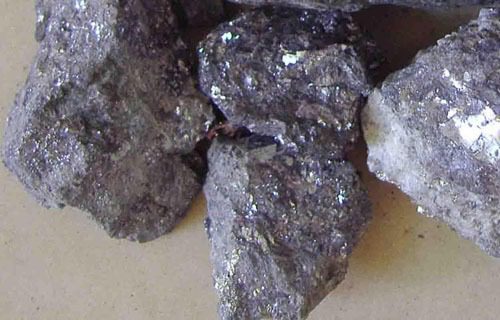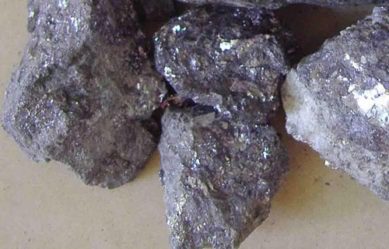Democracy & Governance
Developing the solid minerals sector -By Okwudili Uzoka

With the obvious crash of crude oil and the progressive rise in the value of various solid mineral commodities in the international market, I am quite disheartened and outraged by the seemingly never-ending policy summersaults within the line Ministry, which have conspired to deny this country the immense derivable benefits from the sector, Nigeria’s superabundant, yet largely untapped potentials, for decades.
Thus far and strangely too, not one of the various Ministers from 1995 to date seemed bothered at all that solid minerals had been relegated to contributing a paltry 0.3-0.5% GDP since the early 1970s; whereas long before the discovery of commercial deposits of crude oil in Nigeria, the nation had been a net exporter of solid minerals such as tin, columbite, gold, coal, as well as lead and zinc.
Considering the over-bearing influence of crude oil as the source of over 95% of our annual forex receipts, and the hurting uncertainty of global oil markets which are presently tumbling Nigeria’s fatal attraction to petro-dollars, is all the more worrisome. For now, there is no overstating the fact that minerals constitute vital raw material inputs in most modern industries including petroleum, metallurgical, agro-allied, pharmaceutical, chemical, paint, paper, electrical and electronics as well as building and construction.
With the persistent disquiet in the Niger Delta, the home of our only source of foreign exchange, and the nationwide occurrence of viable solid minerals resources cutting across each of the 774 LGAs, add to the employment generation potential of this sector, it just beats the imagination how Nigerians have yet to reap the abundant benefits of our stupendous solid minerals wealth. The only reasonable explanation apart from the proverbial “Resource Curse” is the rather inexplicable “Nigerian Factor”, a euphemism for inept or irresponsible management.
The Ministry should equally give full effect to the well thought-out and far- reaching provisions of the extant mining code on the provision of relevant equipment and expertise to artisanal and small scale miners which aim is to ensure their operations are conducted in a safe, efficient, profitable and environmentally- sound manner.
This will doubtless catalyze the proliferation of SMEs in the area of mineral extraction as well as downstream activities of mineral beneficiation and in the long term, mineral-based small and medium scale industries, with the potential to create millions of jobs country wide. The hydra-headed monster of illegal mining and minerals smuggling which has cost the nation several billions more, and which is a direct result of the withdrawal of the expatriates is also a testimony to the inability of the public mining institutions to fill the vacuum.
Illegal mining has also resulted in the continued devastation of the environment in mine fields across the country, in some cases wreaking havoc far worse than the colonial mining escapades. Notwithstanding the replacement of the 1971 policy with a new one, in 1998, which emphasized the leadership role of the private sector, the sector still did not attract the much needed private investment owing, in part, to the absence of a mining legislation that is consistent with international best practices, chaotic administration of the sector and inconsistent policy structure by the line Ministry over the years.
Admittedly, the sector has recently recorded a paradigm shift in the area of institutional framework and structure, following the enactment by the last National Assembly in 2007, of a world-class mining code and the formulation of a complementary policy by the line Ministry, in close consultation with the legislative branch. Two critical institutions were established as off shoots of the sectoral reforms: (i) The Mining Cadastre Office, MCO, an independent body responsible for the administration of all mineral titles in a transparent manner, consistent with international best practices. (ii) The extra – Ministerial Nigeria Geological Survey Agency, NGSA, which sub serves as the sole repertoire of all geo-scientific information of the country, providing easily retrievable relevant data for prospective investors and researchers, alike.
All considered, the greatest drawback to this critical sector is the perennial policy summersault. World Bank Data have indicated that the Minimum Reach Out Level for Nigeria’s gold is 500 metres compared to 5000 metres in the dwindling gold fields of South Africa. South Africa’s Minerals legislation is also considered as one of the most draconian by the International Mining Community, yet South Africa remains the preferred destination to Nigeria for international mining investments due to the stability of their legal framework and political environment. There is also the need to put in place a basket of incentives to, in the short term, promote private sector confidence and investments in detailed mineral exploration to delineate viable deposits, as well as mechanized mineral extraction and downstream operations of mineral beneficiation and in the medium term, proliferation of end industries which utilize processed solid minerals as raw material inputs.
For the records, the Minerals surveys of 1903 and 1904 had revealed the vast minerals potentials of the land mass constituting the then Southern and Northern protectorates of the present day Nigeria. Consequent upon the favourable results of these surveys, a flourishing Solid minerals Sector evolved, the main commodities being coal, tin, Columbite, gold, lead and zinc. Nigeria was then placed on the world map as the largest producer of Columbite world wide and among the leading producers of tin, making it an influential member of the Association of Tin Producing Countries (ATPC).
In those glorious days, “hydrocarbons”, representing oil and gas, was just a “desk” in the then Ministry of mines, power and Lagos Affairs, With further oil explorations and the subsequent discovery of oil wells at Oloibiri in the late 1950s by Shell D -Arcy, the Solid Minerals Sector began its gradual descent into oblivion. For the avoidance of doubt, the neglect of the Solid Minerals |Sector is by all means, not as a result of dwindling reserves or its inferior value to crude oil. As a matter of fact, studies by multilateral agencies, the World Bank inclusive, have shown incontrovertible evidence that Nigeria’s Solid Minerals Sector is in a position to rake in four fold the revenue currently accruing to the country. There are nation wide varieties of very valuable solid minerals commodities which are up to ten fold, the value of crude oil, weight–for-weight.


















